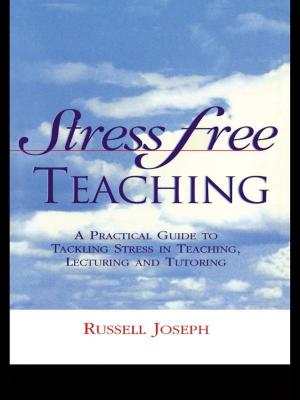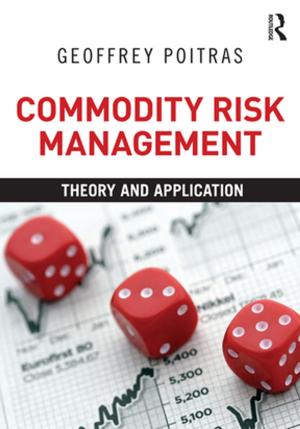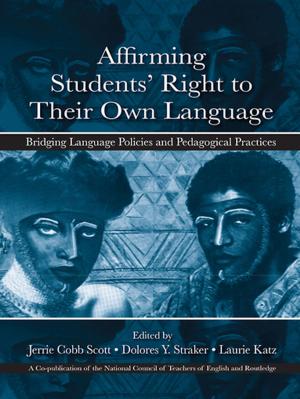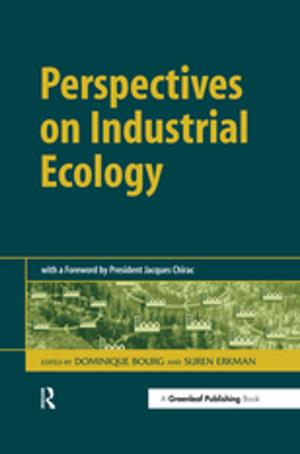Handbook for Distance Learning in Tourism
Business & Finance, Industries & Professions, Hospitality, Tourism & Travel, Nonfiction, Computers, Internet, Reference & Language, Education & Teaching| Author: | Kaye Sung Chon | ISBN: | 9781136407079 |
| Publisher: | Taylor and Francis | Publication: | December 6, 2012 |
| Imprint: | Routledge | Language: | English |
| Author: | Kaye Sung Chon |
| ISBN: | 9781136407079 |
| Publisher: | Taylor and Francis |
| Publication: | December 6, 2012 |
| Imprint: | Routledge |
| Language: | English |
Deliver quality instruction to your students-on-campus or off
The Handbook for Distance Learning in Tourism is a practical, down-to-earth guide to developing and using print-based and Internet-based flexible learning resources for courses where students rarely, if ever, attend on-campus classes. Whether you’re a teacher who needs to develop course notes into a flexible learning package, a Web site, or both, or you just want information about how to teach in a flexible environment, the book will provide the help you need-in language you can understand. Designed to guide you through the completion of a project-or a semester-this hands-on book offers strategies, suggestions, hints, and examples, and includes a hotel and tourism case study that illustrates effective concepts and strategies.
Written by Gary Williams, co-editor of The Internet and Travel and Tourism Education (Haworth), this unique book will help you develop print-based and Internet-based learning resources instead of focusing only on one or the other, breaking down the barriers placed between learning environments. The strategies presented are timeless, with no comparisons of specific commercial or noncommercial products to become outdated and no Web site addresses to become useless. The book makes extensive use of tables, graphics, and illustrations and has its own Web site that’s regularly updated, listing online resources arranged on a chapter-by-chapter basis.
The Handbook for Distance Learning in Tourism examines:
-
the roles and characteristics of a project manager
-
developing and buying resources
-
considerations before committing to a project
-
maximizing project ownership
-
ensuring quality content
-
educational design guidelines
-
media foundations
-
production, design, and maintenance of print resources
-
developing and using Web sites
-
computer-mediated contact
-
course management systems (CMS)
-
and much more!
The Handbook for Distance Learning in Tourism is an invaluable guidebook for educators working in the field of hotel and tourism management as well as academics, project managers, and educational designers who are interested in flexible learning developments.
Deliver quality instruction to your students-on-campus or off
The Handbook for Distance Learning in Tourism is a practical, down-to-earth guide to developing and using print-based and Internet-based flexible learning resources for courses where students rarely, if ever, attend on-campus classes. Whether you’re a teacher who needs to develop course notes into a flexible learning package, a Web site, or both, or you just want information about how to teach in a flexible environment, the book will provide the help you need-in language you can understand. Designed to guide you through the completion of a project-or a semester-this hands-on book offers strategies, suggestions, hints, and examples, and includes a hotel and tourism case study that illustrates effective concepts and strategies.
Written by Gary Williams, co-editor of The Internet and Travel and Tourism Education (Haworth), this unique book will help you develop print-based and Internet-based learning resources instead of focusing only on one or the other, breaking down the barriers placed between learning environments. The strategies presented are timeless, with no comparisons of specific commercial or noncommercial products to become outdated and no Web site addresses to become useless. The book makes extensive use of tables, graphics, and illustrations and has its own Web site that’s regularly updated, listing online resources arranged on a chapter-by-chapter basis.
The Handbook for Distance Learning in Tourism examines:
-
the roles and characteristics of a project manager
-
developing and buying resources
-
considerations before committing to a project
-
maximizing project ownership
-
ensuring quality content
-
educational design guidelines
-
media foundations
-
production, design, and maintenance of print resources
-
developing and using Web sites
-
computer-mediated contact
-
course management systems (CMS)
-
and much more!
The Handbook for Distance Learning in Tourism is an invaluable guidebook for educators working in the field of hotel and tourism management as well as academics, project managers, and educational designers who are interested in flexible learning developments.















